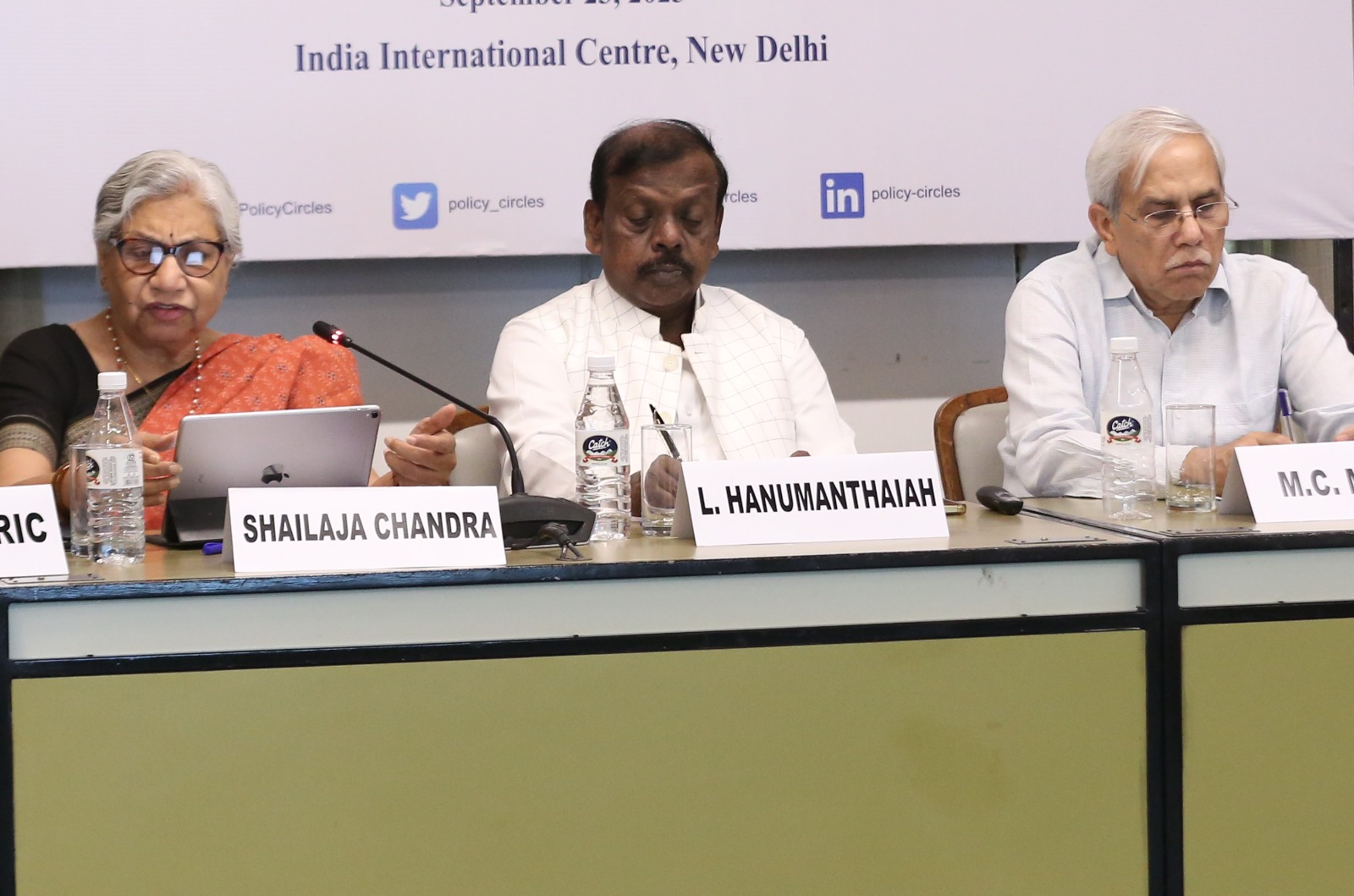
Renowned medical experts speaking at a roundtable, ‘Lung Diseases in the Post-Covid Era – Challenges for India’, have called for a paradigm shift in the approach to tobacco control, emphasising the importance of novel harm reduction strategies in combatting the scourge of smoking-related illnesses.
Tobacco use is a major public health threat for India and the world. According to the World Health Organisation (WHO), tobacco kills more than 8 million people each year, including 1.3 million non-smokers who die from exposure to second-hand smoke. Tobacco is the leading preventable cause of death worldwide. WHO estimates that more than 1 billion people smoke tobacco worldwide, and that tobacco use accounts for 13% of all deaths in adults over the age of 30.
Dr Peter Harper, a medical oncologist and founding partner of the London Oncology Clinic, highlighted the critical need to explore innovative strategies to address the global tobacco epidemic. The urgency of reimagining tobacco harm reduction is a key element of public health discourse, he said at the roundtable of doctors, organised by Policy Circle.
While advocating for smoking cessation was a clear imperative, Dr Harper pointed out the formidable challenge posed by tobacco addiction. Through his extensive involvement in clinical trials and collaborations with pharmaceutical companies, Dr Harper illuminated valuable insights into harm reduction, emphasizing the need to prevent cancer rather than merely treating its catastrophic consequences.
At the core of the advocacy for harm reduction lies a commitment to identifying the sources of carcinogens and implementing measures to reduce exposure through behavioural changes. Dr Harper said that smoking remains the primary risk factor for lung cancer. He highlighted the complexities of addiction, acknowledging the profound stress involved in quitting, which often renders it an insurmountable challenge for many individuals. This underscores the need for a nuanced and multifaceted approach.
He also pointed to the alarming fact that a significant portion of individuals diagnosed with lung cancer continue to smoke, necessitating a comprehensive examination of the composition of smoke and the carcinogenic components within. He called for innovative harm reduction strategies to address this enduring issue, emphasizing that unless the prevalence of smoking is effectively addressed, the incidence of cancers and chronic respiratory diseases will remain unacceptably high.
With a global burden of one billion individuals at risk due to tobacco use, Dr Harper argued that harm reduction is the solution deeply ingrained in various aspects of our daily lives. He dispelled the common misconception that nicotine itself is a carcinogen and discussed the effectiveness of nicotine replacement therapy (NRT) under medical supervision. Dr Harper then introduced three noteworthy harm reduction strategies: snus, e-cigarettes, and heated tobacco products. These alternatives, backed by meticulous research and the support of public health authorities, offer a potent force against addiction and carcinogens.
Dr Bharat Gopal, Director & Head of the Department of Pulmonology, Critical Care & Sleep Medicine at Delhi Heart and Lung Institute, highlighted the changing face of tobacco addiction management. He emphasised the shift from traditional methods to innovative technologies and strategies, acknowledging that tobacco addiction, responsible for over 6 million annual deaths worldwide, remains an eminently avoidable pandemic.
Dr Gopal discussed in detail the novel delivery systems for nicotine replacement, such as inhalers and nasal sprays, which offer alternatives to traditional methods and reduce the harmful effects of combustion. He also delved into the contentious issue of e-cigarettes, citing studies that suggest their efficacy in aiding smoking cessation while acknowledging the need for caution and ongoing research into their long-term effects.
The adoption of telemedicine, smartphone applications, virtual reality, artificial intelligence, and machine learning in smoking cessation was highlighted by Dr Gopal as innovative approaches to provide tailored interventions and support. He noted the value of digital tools in empowering individuals on their journey to quit smoking.
Both Dr Harper and Dr Gopal served as a clarion call on the urgent need to embrace innovative harm reduction strategies in the fight against tobacco addiction. These strategies, rooted in science and technology, offer hope for a smoke-free future, bridging the gap between addiction and cessation.
Video links:
Dr Harper: https://www.youtube.com/watch?v=hRjLAATgFCA&t=124s
Dr Gopal: https://www.youtube.com/watch?v=0vwaLJSQHBs&t=214s
